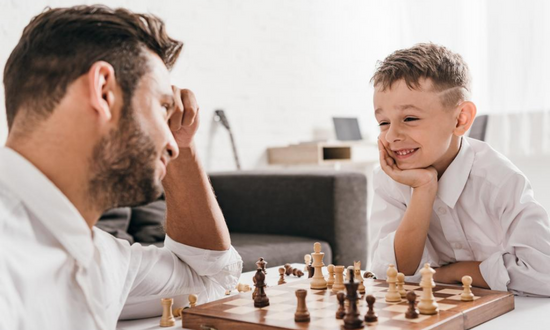Ajedrez is a game, exercise and sport extremely good for the brain, as it allows the cognitive abilities of any human being to be developed, especially the youngest. If you want to involve your children, keep reading to learn what are the incredible ones benefits of teaching children gymnastics.
The stadium has a great advantage over the rest of sports, because it is one of the oldest in the world, its origins despite being diffuse, if it is said that was born in India more than 1,500 years ago.
With the passage of time has been shown to help children Relating to school, which might seem like a hobby for some, is actually an assistant who can strengthen cognitive functions during childhood development when needed most.
Benefits of teaching children early in life

Now we want you to see what the main benefits are for children and why it is important to encourage them to reason, wait and respect the fights and defeats that occur in different situations.
1. Develop logic, critical thinking and creativity.
As we mentioned previously, its benefits are unique and infinite. The exercise exercises both sides of the brain, which leads to having to take action in different scenarios, requires players to imagine all the potential movements, alternatives and results of each possibility.
Logic to understand how to play, critical thinking to know how to understand future movements and creativity to solve a group of conductors.
2. Increases concentration and memory
It improves significantly visual memory and concentration. Children who play the game regularly can have spaces that generate more determination, due to which the game itself rewards concentration and penalizes if it is lost.
In addition to provide the child's brain with fun, It also provides concentration while enjoying playing several games.
3. Develop the ability to solve problems
Solving problems is a hassle a learning that will take us years to develop, however, with the adrez it is possible to achieve problem solving, planning and prediction. Being able to think about changing variables and formulate different possibilities are necessary skills for the game.
Furthermore, will help to focus one of the most important things in life.
4. Improve your reading ability and connect with others
The children use cognitive functions like the decoding, analysis, thinking and understanding necessary to read. And the leadership has the ability to teach certain skills in a subtle way.
On the other hand, the difference between video games and television, the game creates a human connection through a game healthy competitive. Teaching a child to play tennis on the ground builds a healthy brain, which also strengthens positive relationships and builds lasting memories.
That is to say, it becomes one Rewarding activity to play with the family.
5. Teaches you how to plan and predict situations
To win the game you have to have it ability to predict multiple possibilities and outcomes to formulate a successful plan. Ultimately, the objective is to capture the opponent's king, but patience and planning are the key to achieving it.
6. Participate in the mind off the screens
It is not surprising that the amount of screen time that is exposed to children today can decrease their ability to concentrate and focus.
The ajedrez is a powerful way to counter the negative effects of the digital era, involving them in an activity that improves concentration, while still giving a Fun activity to enjoy off screen.
If you want to know more, visit our category about Sports
